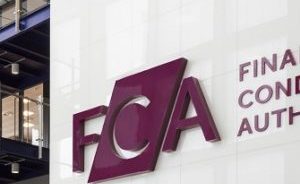Main residence nil-rate band
From 6 April 2017, the main residence nil-rate band will be available in addition to the existing nil-rate band of £325,000 (see table).
The additional allowance will only be available where a family home or ‘main residence’ is transferred to a direct descendant of the deceased.
It is limited to one property but personal representatives can nominate which property should qualify if there is more than one. A property that was never a residence of the deceased, such as a buy-to-let, will not qualify.
This adds an extra layer of complexity around estate planning and clients will need advice on how best to use the allowance. It is made more confusing by the fact that people do not have to own a property on death to benefit from the new main residence nil-rate band.
Provided they owned a property as at 8 July 2015, it doesn’t matter if, when or how they dispose of the property, their estate will still benefit from the main residence nil-rate band on death.
Changes to main residence nil-rate band
Year (amount)
2017-18 (£100,000)
2018-2019 (£125,000)
2019-2020 (£150,000)
2020-2021 (£175,000)
This will increase in line with CPI from 2021-22 tax year onwards.
Common reporting
Standard Last year was the first time that data was captured under the Common Reporting Standard (CRS), and only people with over £1m invested were in its scope. This information will be automatically shared with other countries and jurisdictions, who are signed up to the CRS, in June. During 2017, the scope of the CRS data capture broadens to include all investors. This information will then be exchanged with other countries and jurisdictions in June 2018.
Advisers and providers have a joint responsibility to ensure all UK-based clients are reminded of their tax-reporting obligation by 31 August 2017. Clients with undisclosed income from overseas investments should disclose to HMRC now and make the most of the disclosure facility. From 30 September 2018, there will be tougher sanctions for offshore tax evasion.
Tax-avoidance schemes
There will be tougher sanctions for any adviser deemed an ‘enabler’ of tax-avoidance arrangements. The penalty charged will be equal to the amount of consideration received or receivable by an enabler for their role.
Advisers unsure about the legitimacy of an arrangement or structure should avoid using it. Offshore bonds have been confirmed by HMRC as a legitimate way for people to invest overseas.
UK pensions
The UK pensions market has undergone radical change during the past few years but we are now entering a calmer period.
One of the changes to be aware of is on pension transfers.
The appetite for defined-benefit (DB) transfers has been increasing in recent years, driven by the relatively high transfer values, pension freedoms and the increasing uncertainty of DB schemes being able to meet their liabilities.
Transfer values have benefited from falling interest rates and low gilt yields. However, a shifting economic landscape threatens this currently favourable scenario.
The fall in the pound has increased inflation, which could go on rising for the next couple of years. Inflation is the enemy of bond returns: if inflation rises, it eats into the buying power of fixed income. With the market expecting inflation to increase in the future, gilt yields may be pushed higher, which would exert a downward pressure on transfer values.
Volatility in investment markets may also affect the returns schemes receive, which could force trustees to reduce transfer values as they seek to stem outflows and protect the remaining members of the scheme.
Pension transfers from DB schemes are irreversible and the investment and longevity risk that comes with defined contribution schemes needs to be managed.
Another important change concerns Money Purchase Annual Allowance (MPAA). The current annual allowance is £40,000. This reduces to £10,000 for money purchase arrangements as soon as pension benefits, other than the tax-free lump sum, are accessed flexibly. It is proposed that the MPAA reduces further, to £4,000 (subject to consultation), from 6 April 2017.
Careful planning is needed for people who may still want to make further pension contributions in the future but are considering flexibly accessing their pension savings. If they take income in the wrong way, it could lead to a 90% reduction in their ability to save into a pension from 6 April 2017.
Evolution of advice
Regulatory convergence and shifting client expectations are gathering pace internationally. The year ahead will be one of significant change for many advisers who have begun the journey towards building a more sustainable business, and we expect this to snowball throughout 2017.
For advisers globally, the year will be as much about focusing on evolving their business as it will be about looking for advice opportunities for their clients.




